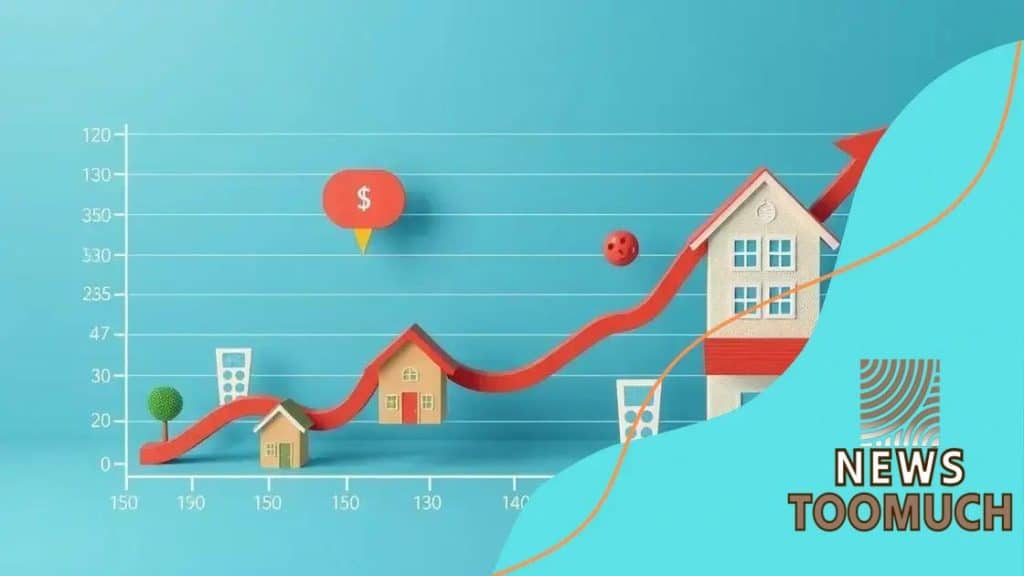The impact of inflation on real estate market dynamics

The impact of inflation on real estate market dynamics drives up home and rental prices, complicating affordability for buyers and renters while creating challenges and opportunities for investors.
The impact of inflation on real estate market dynamics is more significant than many realize. Have you noticed changes in your neighborhood’s housing prices? Let’s dig deeper into how inflation shapes these trends.
Understanding inflation’s role in real estate
Understanding inflation’s role in real estate is crucial for both buyers and investors. Inflation can significantly affect how properties are valued and what people are willing to pay. At its core, inflation is the steady increase in prices over time, and it can have a major impact on the housing market.
When inflation rises, the cost of living increases. This means that home prices can also surge. For many people, this can make homes less affordable. Buyers must adjust their budgets, and some may even decide to delay purchasing a home until prices stabilize.
The effects of inflation on property values
Property values are often directly linked to inflation. When inflation is high, property prices generally rise as well. This can lead to increased equity for homeowners. However, for new buyers, this can pose a challenge. Higher prices can make it harder to enter the market.
- Increased demand from buyers seeking to hedge against inflation.
- Higher costs of construction materials affecting new builds.
- Rising interest rates reflecting inflationary pressures.
Both current homeowners and potential buyers should be aware of these trends. Understanding how inflation influences the market can help people make informed decisions. As inflation affects mortgage rates, they can also influence whether you’re ready to buy. If mortgage rates rise alongside inflation, monthly payments could become overwhelming for many.
How inflation influences market behavior
The behavior of the real estate market can drastically change with inflation. As prices climb, many investors look for properties that may retain their value despite economic fluctuations. This is often seen in areas where demand remains high or in emerging neighborhoods.
Also, renting can become a more appealing option during times of high inflation. Many individuals find it more manageable to rent rather than purchase as owning a home becomes a larger financial commitment. By understanding inflation’s effects on real estate, buyers can position themselves strategically.
How inflation affects property values
How inflation affects property values is a pivotal aspect of the real estate market. When inflation rises, it usually leads to an increase in the cost of materials and labor, which can escalate the prices of homes. As a result, potential buyers might find themselves facing significantly higher prices than what they had anticipated.
A rise in property values typically means that homeowners can build more equity. This can be beneficial for those looking to refinance or sell their homes later. However, it can also make purchasing a new home less attainable for first-time buyers, who may struggle with the increased prices.
The correlation between inflation and home prices
Home prices often move in tandem with inflation rates. If the inflation rate increases, so too does the general price of homes. This cycle means that buyers need to be strategic. For instance, some may choose to buy sooner rather than later, fearing that prices will only continue to rise.
- A higher inflation rate can lead to rapidly rising home prices.
- Homeowners might see an increase in their property value over time.
- Potential buyers may face higher monthly payments due to increased home prices.
In areas where the market is hot, inflation can push prices even higher, leading REALTORS® to advise buyers to act quickly. It’s essential for buyers to stay informed about economic indicators that can signal changes in property valuations.
Effects on market behavior
As inflation affects property values, the behavior of buyers and sellers in the market also changes. Many sellers may hold off on selling their properties if they believe prices will rise further. On the other hand, buyers may rush to purchase homes before prices increase even more, creating a competitive landscape.
This competition can result in bidding wars, where multiple buyers compete for the same property, often driving prices higher. Understanding how inflation impacts real estate is critical for anyone looking to navigate the market strategically.
The impact of inflation on mortgage rates

The impact of inflation on mortgage rates is significant for both current homeowners and potential buyers. When inflation rates rise, lenders often respond by increasing mortgage rates. This can lead to higher monthly payments, making home buying less affordable.
As inflation accelerates, the cost of borrowing also increases. Higher mortgage rates can create a barrier for first-time homebuyers who may already be struggling with rising home prices. Understanding this relationship is vital for anyone considering purchasing a home.
Understanding the connection
Mortgage rates and inflation are closely linked. When inflation goes up, the purchasing power of money decreases. Lenders increase rates to maintain their profitability. This means that if you plan to buy a home, it’s essential to act sooner rather than later, as waiting could lead to even higher costs.
- Increased inflation typically results in higher interest rates.
- Higher rates can limit access to mortgages for many buyers.
- Potential buyers may need to reassess their budgets to accommodate rising costs.
While inflation impacts mortgage rates, it’s also important to be aware of the overall market conditions. If inflation is expected to continue rising, the housing market could become even more competitive. That’s why understanding these factors is crucial for making informed decisions.
Long-term considerations
Long-term borrowers may feel the effects of rising mortgage rates more intensely. As interest rates climb, the total cost of homeownership can increase significantly. Higher payments can influence how much buyers feel comfortable spending on a home.
Additionally, homeowners looking to refinance may find that the benefits of refinancing diminish as rates climb. It’s a challenging cycle that both current owners and potential buyers need to navigate carefully while considering the broader economic landscape.
Inflation and rental market trends
Inflation and rental market trends are interconnected in many ways. When inflation rises, it can significantly affect rental prices, which can become a burden for many renters. Landlords may increase rents to keep up with rising costs, impacting tenant budgets.
As inflation goes up, the cost of maintaining properties also tends to rise. This means landlords often pass these additional costs onto tenants. Understanding this trend is essential for both renters and property owners alike.
The effect on rental prices
In general, rental prices increase during periods of inflation. This occurs because landlords need to cover expenses like property taxes, maintenance, and management costs. Many renters may feel this pressure as they look for suitable housing in an inflated market.
- Higher demand for rental units can lead to increased prices.
- Renters may find it challenging to negotiate lower prices.
- Areas with limited housing supply could see even greater rent increases.
For those looking to rent, it can be helpful to research local market conditions. Knowing what is typical in your area can assist in making informed decisions about lease agreements. Renters might also consider locking in leases during periods of lower inflation to save money long-term.
Long-term impacts on tenants
As rents rise, tenants may face tough choices. They might need to adjust their budgets or search for more affordable housing options. This can lead to increased mobility, as renters seek to find lower-cost accommodations.
In response to inflation, some individuals may choose to move in with family or friends to cut costs. This shift can affect the demographics in specific areas as housing becomes less affordable for many. Keeping up with inflation trends can help renters navigate these changes effectively.
Strategies for navigating inflation in real estate
Strategies for navigating inflation in real estate are essential for buyers, sellers, and investors. When inflation rises, it can complicate the real estate market, but understanding how to respond can help stakeholders make better decisions. Adopting effective strategies is key to thriving even when inflation is high.
For buyers, it’s vital to act quickly. If potential homebuyers wait too long, they might face even higher prices later. Consider looking into fixed-rate mortgages that can lock in lower interest rates now before they increase further.
Investment strategies during inflation
Real estate can often serve as a hedge against inflation. When choosing investment properties, focus on areas that show strong growth potential. Properties in desirable neighborhoods tend to hold or increase their value, even when inflation rises.
- Invest in multi-family properties to maximize rental income.
- Consider commercial real estate that offers long-term leases.
- Look for properties in growing regions with job growth.
Staying informed about market trends is also essential. Understanding which areas are thriving can guide your investment choices.
Rental property strategies
If you own rental properties, consider adjusting rental rates to keep pace with inflation. You may want to review lease agreements regularly to reflect current market conditions. Implementing annual rent increases can help maintain your investment’s value.
Also, improving the property can attract new tenants willing to pay a premium. Enhancements can include better amenities or energy-efficient upgrades. This not only retains current tenants but can also justify higher rents.
FAQ – Frequently Asked Questions about Real Estate Inflation
How does inflation affect home prices?
Inflation generally causes home prices to rise, making properties more expensive for buyers and renters.
What should I do if I’m looking to buy a home during high inflation?
It’s crucial to act quickly and consider locking in a fixed-rate mortgage to secure lower interest rates before they increase further.
How can landlords cope with rising costs due to inflation?
Landlords can consider increasing rent gradually, improving properties to attract tenants, and reviewing lease agreements regularly.
Is real estate still a good investment during inflation?
Yes, real estate can serve as a hedge against inflation, especially in desirable areas where property values are likely to hold or increase.





